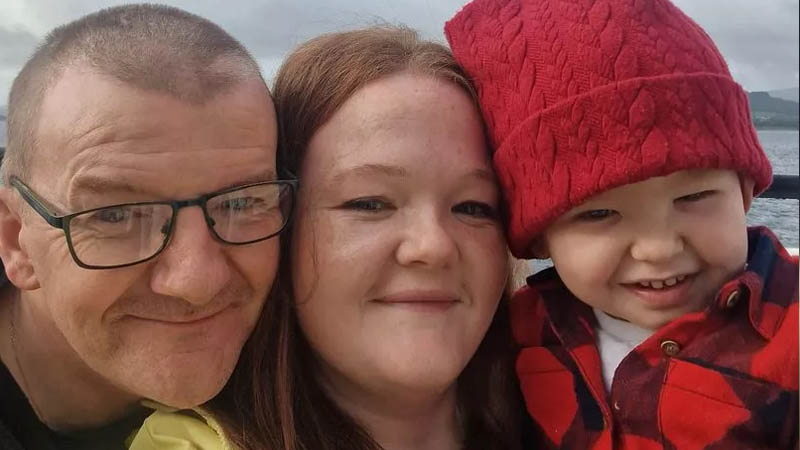
“I Blamed Myself”: A Mother’s Heartache Over Newborn’s Rare Skull Condition
Share0Christina Kuczerepa, a 38-year-old mother, faced a heartrending ordeal when her son Zander was diagnosed with a rare condition just minutes after his birth. Zander was born prematurely in 2021 with metopic craniosynostosis, a condition where the skull bones fuse prematurely. Christina recalled the overwhelming moment, saying, “To be honest, we didn’t know anything about this until we had Zander.”
During the pregnancy, a scan showed Zander’s unusual head shape, but Christina and her partner Alexander were assured they would be contacted if concerns arose. However, no further communication came until Zander’s birth revealed the urgent need for a “terrifying” operation on his skull. “We felt so in the dark,” Christina shared, expressing the isolation and fear that clouded this period, especially as it coincided with the COVID-19 lockdowns, adding to their sense of isolation, via Daily Record.
The operation, described in stark terms, involved cutting from ear to ear and reconstructing Zander’s forehead. “It was so overwhelming to hear about what was going to happen to my little baby. It was so scary,” said Christina. The procedure, performed when Zander was 16 months old, was a success, but not without its emotional toll on the family.
Christina wrestled with guilt, feeling responsible for her son’s condition. “I was very upset, and distressed. I went through a lot of guilt, I blamed myself because I was the one that carried him,” she explained. This sentiment was echoed despite reassurances from her husband and others, illustrating the profound impact of maternal guilt.
The surgery day was fraught with anxiety for Christina and Alexander. They were briefed on the details of the operation, including the use of power drills, which Christina found distressing. After an agonizing wait, they were reunited with Zander, who was then covered in tubes and monitors, a sight that deeply affected them.
In the aftermath, Christina found solace and support in a group called Cranio Ribbons, which assists families dealing with similar conditions. She now seeks to raise awareness about metopic craniosynostosis and the availability of support, urging other parents to seek help and know they are not alone.
Today, Zander is in good health, though the possibility of future surgeries remains. Christina remains hopeful but cautious about his future, drawing strength from the community they have found. “Being on the other side now, although we’re still worrying about his future, it’s not as scary as it might seem,” she concluded.
The NHS assures that most children with metopic craniosynostosis have a positive prognosis, capable of leading normal lives, though outcomes can vary with other medical conditions. This gives families like Christina’s a hopeful outlook, despite the challenges they may face ahead.
